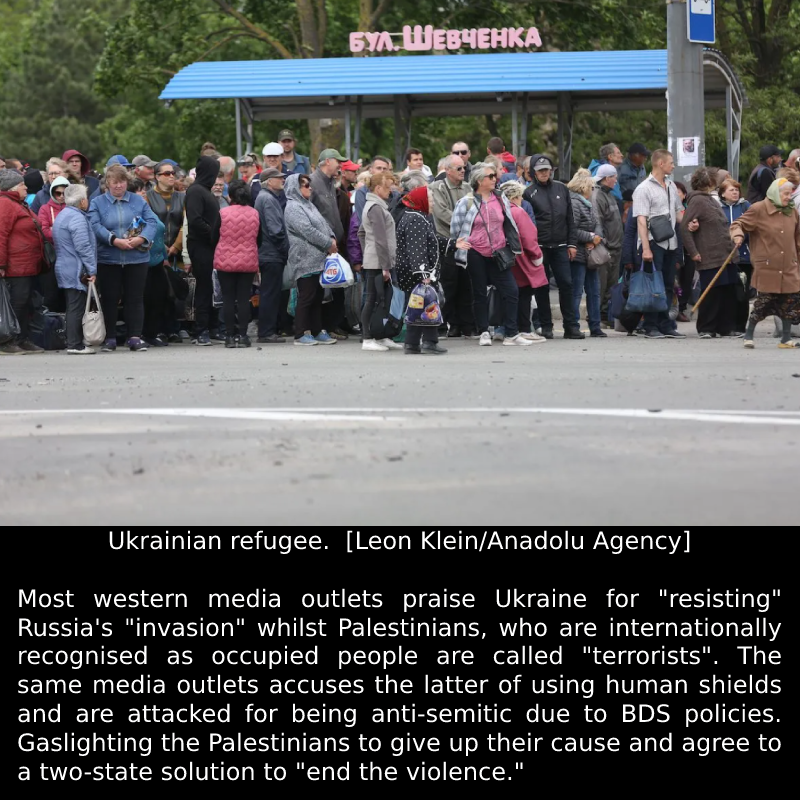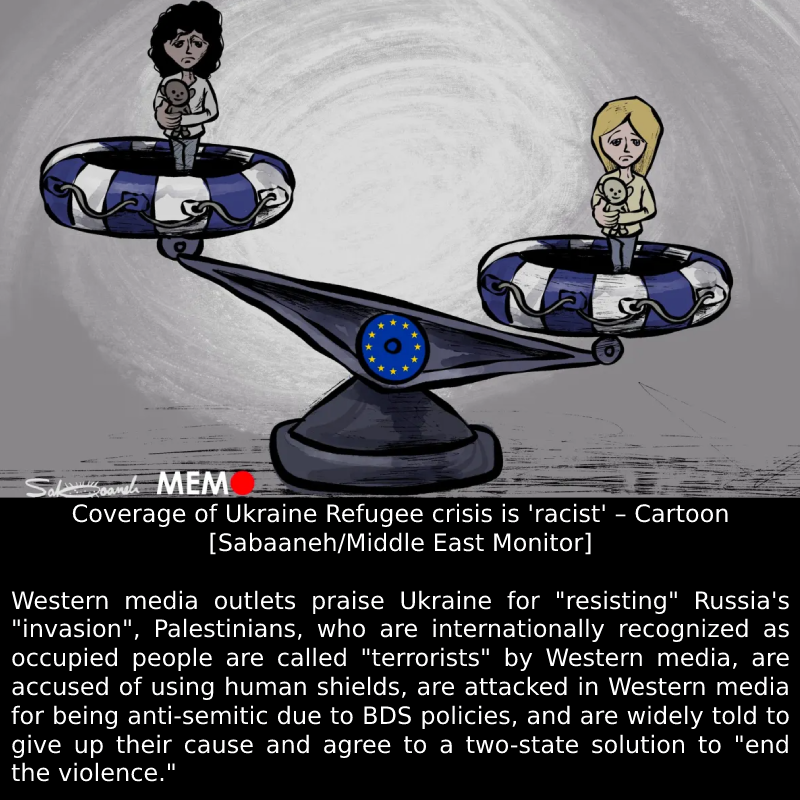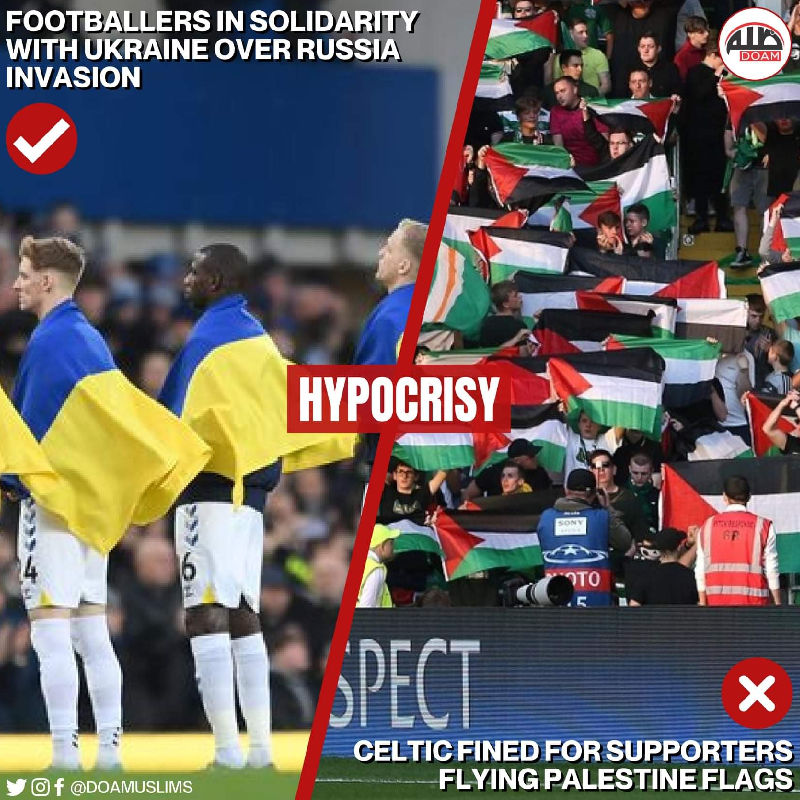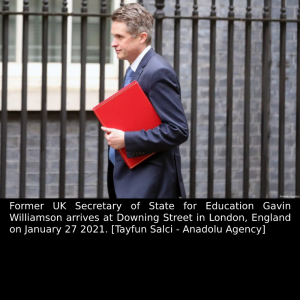
The glaring disparity between the way that the British government views support for Ukraine in schools and solidarity with Palestine has been revealed by a new survey conducted for the London-based advocacy group CAGE. The survey is based on the feedback of 532 respondents across England, Wales and Scotland, and covers primary schools, secondary schools, sixth forms and two universities.
It highlights starkly the double standards employed by the government in the way it looks at the suffering of Ukrainians and Palestinians. In particular, it asked respondents to consider the government response to Russia’s invasion of Ukraine which started in February this year, and Israel’s 2021 military offensive against the Palestinians in the blockaded Gaza Strip.
Both Ukraine and Palestine have seen some of the most brutal violence against civilians in recent history. In Palestine, though, the aggression has continued over seven decades with the complicity of successive British governments, and their reaction to the ethnic cleansing, almost daily killings and human rights abuses, not to mention violations of international law, has been muted at best.
As with every Western government, Britain ignores the findings of major human rights groups including Amnesty International and Human Rights Watch, about Israel’s practice of apartheid and crimes against humanity. In stark contrast, the invasion of Ukraine by Russia under President Vladimir Putin has been met with sanctions and unprecedented displays of solidarity.
Despite their claims to be defenders of human rights and protectors of international law, the same governments have gone as far as to undermine principles long held to be very basic, such as freedom of expression, in order to crack down on pro-Palestine solidarity and preserve their own ongoing support for the apartheid state of Israel. The findings of the CAGE survey expose this hypocrisy and double standards.
“The research seeks to illustrate what many have instinctively felt to be a stark disparity between the way that solidarity with Palestinians was repressed in British schools, compared to the expansive support extended to Ukrainians,” said Azfar Shafi, the author of the study and Head of Research at CAGE.
Testimonies from respondents highlight the sense among parents and students that there exists a hierarchy in human dignity and suffering. Non-Europeans are viewed by the government as being less deserving of the rights and protection granted to others from a European background.
According to the survey, 96 per cent of respondents confirmed proactive engagement on the Ukraine issue by schools. Activities included non-uniform days, appeals for charitable donations and paid-for advertisements in school newsletters. Sixty-two per cent indicated that their schools had raised funds or hosted donation drives for Ukraine.
By way of contrast, there was widespread repression of Palestine solidarity seen in schools last year, with dozens of parents challenging their children’s schools about it. This included a marked reluctance to raise awareness of or discuss the issue or raise funds for needy Palestinians, and active suppression of the Palestinian flag being shown or displayed within schools. Indeed, schools made every effort to silence discussion of the Israeli attack on Palestine or educate children on the context and history of the region.

“They deflected questions and didn’t give students the answers they were looking for when asked why funds were being raised for Ukraine and they weren’t even allowed to wear badges for Palestine,” said one respondent. “The only time where they [the school] directly spoke about Palestine was in an email about a year ago and it was to discourage any efforts to raise funds. The double standards are uncanny.”
Another responded by saying that her daughter was reported to the Designated Safeguarding Lead in her school last year after she discussed how her dad was raising money for Palestine. Yet another pointed out how the school had organised a collection for Ukraine but children were unable to do the same for Palestine due to it being a “political” and “religious” issue.
One grandmother described how her granddaughter had emailed and approached the school last year requesting them to hold an assembly and a one-minute silence for the children who had lost their lives during the bombardment by Israel. She went on to explain that the request was turned down, as was her appeal to raise the Palestinian flag in solidarity with the besieged population of Gaza during Israel’s 11-day bombardment in May last year.
“Despite the sharp differences, the research uncovered some notable convergences in the way that the government approached the questions of Palestine and Ukraine in school,” explained Shafi. The contrasting responses to the killing and suffering in Palestine and Ukraine were both government-led.
“Whether under the banner of countering ‘extremism’, preventing ‘anti-Semitism’ or tackling ‘disinformation’, there has been a concerted effort to stage-manage the terms of political discussion in schools, including through the use of security thinktanks, to firmly align with British foreign policy interests.”
Article taken from Middle East Monitor. 27 July 2022
Related photo:


